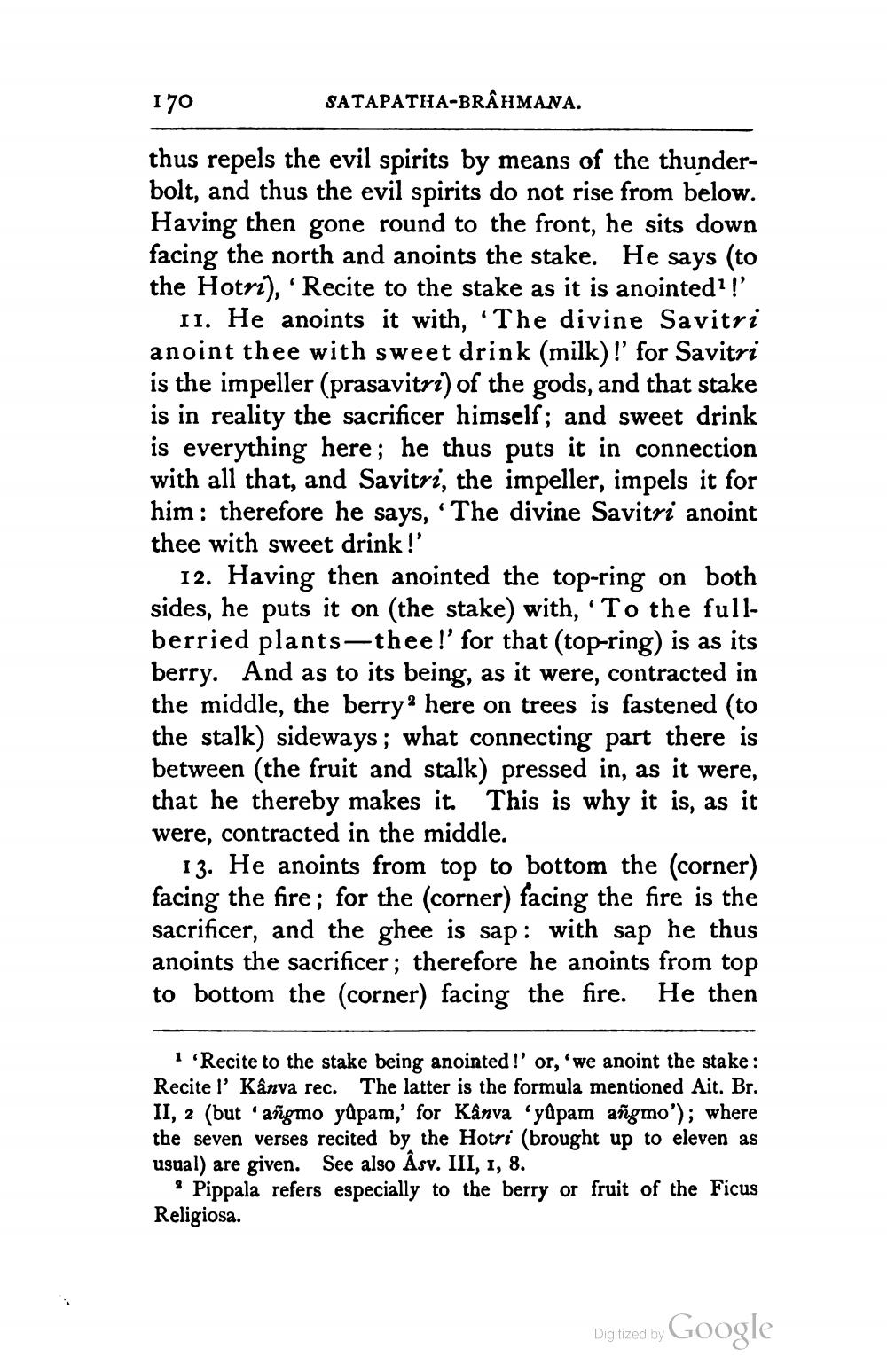________________
170
SATAPATHA-BRAHMANA.
thus repels the evil spirits by means of the thunderbolt, and thus the evil spirits do not rise from below. Having then gone round to the front, he sits down facing the north and anoints the stake. He says (to the Hotri), 'Recite to the stake as it is anointed?!'
11. He anoints it with, “The divine Savitri anoint thee with sweet drink (milk)!' for Savitri is the impeller (prasavitri) of the gods, and that stake is in reality the sacrificer himself; and sweet drink is everything here; he thus puts it in connection with all that, and Savitri, the impeller, impels it for him: therefore he says, 'The divine Savitri anoint thee with sweet drink!'
12. Having then anointed the top-ring on both sides, he puts it on (the stake) with, 'To the fullberried plants—thee!' for that (top-ring) is as its berry. And as to its being, as it were, contracted in the middle, the berryhere on trees is fastened (to the stalk) sideways; what connecting part there is between (the fruit and stalk) pressed in, as it were, that he thereby makes it. This is why it is, as it were, contracted in the middle.
13. He anoints from top to bottom the corner) facing the fire; for the (corner) facing the fire is the sacrificer, and the ghee is sap: with sap he thus anoints the sacrificer; therefore he anoints from top to bottom the corner) facing the fire. He then
1 Recite to the stake being anointed!' or 'we anoint the stake: Recite l' Kânva rec. The latter is the formula mentioned Ait. Br. II, 2 (but 'angmo yūpam,' for Kanvayûpam añgmo'); where the seven verses recited by the Hotri (brought up to eleven as usual) are given. See also Asv. III, 1, 8.
Pippala refers especially to the berry or fruit of the Ficus Religiosa.
Digitized by Google




